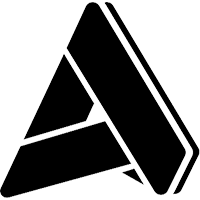ERP Definitions
ERP Definitions
ERP Definitions
Aug 26, 2021
 Aptean Staff Writer
Aptean Staff Writer 
What Is ERP?
Enterprise resource planning (ERP) is a “…framework for organizing, defining, and standardizing the business processes necessary to effectively plan and control an organization so the organization can use its internal knowledge to seek external advantage,” according to the APICS dictionary.
More simply: an ERP is a set of software applications that allow you to efficiently and effectively plan and control your business.
Essentially, ERP systems offer a digitized, 360-degree view of your business. It controls your products and processes, information flow, procedures and relationships between functions, people and activities.
A set of planning applications can provide recommendations for what must be accomplished to meet the forecasted demand and keep the business functioning smoothly—enabling you to be ready for today’s challenges. And tomorrow’s.
How ERP Works
Planning is at the core of ERP.
It’s embodied in a top-down hierarchy of functions—master planning, detailed material and resource planning and execution (production control and purchasing). Master planning is the executive-level function that maintains the operational business plan and supports the sales and operations planning processes.
Detailed material requirements planning uses bill of material and inventory information to develop a complete manufacturing and purchasing plan for all products, assemblies, components and materials.
At this same level, capacity requirements planning tie the production plan to resource availability—which provides visibility for work center capacity and loading.
Clustered around the planning core functions, additional software modules provide support for:
Executing the plan (production control and purchasing)
Gathering information for tracking status and feedback to planning (closed loop)
Accounting and control
Additional modules help manage customer orders and fulfillment, forecasting, costing (often integrated within the execution functions), master data (bills of material and routings), finance (accounts payable and receivable, payroll, general ledger, financial reporting and analysis), quality, and shop-floor data collection.
Definition of Cloud ERP
The definition of cloud ERP is the same as the first sentence of this blog.
It’s a framework, a foundation. And it enables you to work better, faster and smarter.
The only difference is that a cloud ERP doesn’t need to “live” in a particular place or building. It’s all in the cloud.
Though there are some differences, a lot of businesses use “the cloud” and “SaaS (software as a service)” synonymously. Because in both respects, they’re talking about a “software distribution model in which a service provider hosts applications for customers and makes them available to these customers via the internet.” At least that’s how InfoWorld describes it.
If you’re operating with a cloud ERP, you’re able to be more agile, more scalable and better prepared for any kind of unexpected event. You don’t rely on hardware and operate with desktop computers. You’re mobile—you can work remotely and on the go while still getting real-time access to all your data.
If you currently operate on-prem, but cloud ERP sounds appealing, you’re not alone. There are a lot of businesses eager to take their first steps on their digital transformation journey—a journey all about harnessing the power of modern solutions to drive efficiency across your entire operation. In other blogs, we cover the pros and cons of on-prem vs cloud deployment strategies.
You run better when your software runs better. With the cloud, you’re always running strong.
What Is Industry-Specific ERP?
ERP software tailored-made specifically for your industry, and, depending on the software, verticals within your industry.
If you work in distribution, for example, supply chain management functionality is essential. If you work with consumer goods importers, EDI and direct-to-consumer (DTC) shipping functionality are absolutely necessary.
But if you’re in the food and beverage industry, traceability functionality is a must-have. You can’t do good business without it.
Though ERP solutions look different from vendor to vendor, it’d be impossible to define ERP systems without mentioning technology infrastructure.
Your ERP solution must be built on a single, comprehensive database management system. Data analysis and reporting tools are also an essential part of the system, allowing full utilization of the information the system will manage. Also, and perhaps most importantly, when you can centralize your data and harness the power of your analytics and KPIs, you get complete visibility into your profitability. You know exactly what your bottom line is.
The Aptean Advantage
If you’re considering an ERP for your business, you must shop around for an industry-specific ERP solution. That way, you have folks building something specifically for you and the unique challenges you face.
Aptean does this exactly. Whether it’s for food and beverage, fashion and apparel, consumer goods, discrete manufacturing, equipment dealer management or anything in between—Aptean solutions are purpose-built for the demands of your industry.
And we can say that because we’ve lived it. We’ve worked in those industries too. We know your challenges and pain points. And we’ve built something to help you overcome them. To enable you to thrive.
Aptean ERPs enable you to operate more effectively by enhancing visibility, promoting fluid workflow between departments, streamlining operations and creating more efficient, profitable business practices.
Read more about our cloud ERP software offerings or learn more about the need for ERP to further optimize operations. If ready to talk with an industry expert about an Aptean ERP that can support your business, reach out, now.
Discover Industry-Tailored Software Built by the Experts
With deep technical know-how and a commitment to innovation, we deliver tailored software to businesses like yours. Reach out today for your free, no-obligation consultation with an industry expert.



